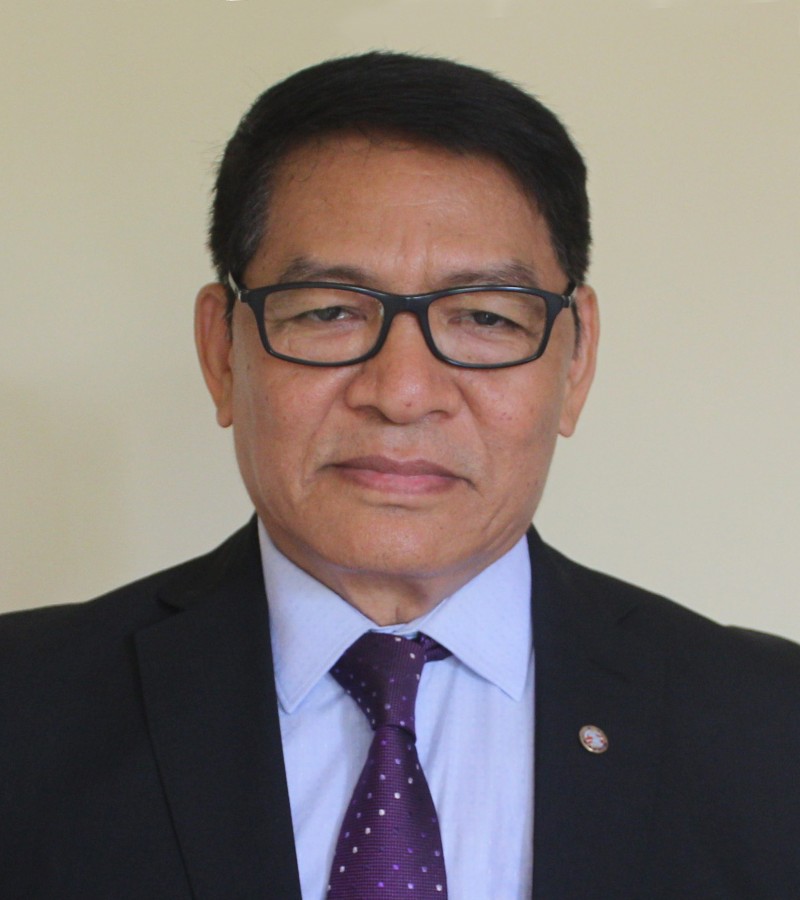Editorial
Freedom of Expression: A Prerequisite for Peace
Opinion | Editorial | John S. Shilshi | 15-Oct-2021

The Norwegian Nobel Committee has yet again surprised the international community with their selection of the recipient of the Nobel Prize for Peace, by naming two journalists - Maria Ressa of Philippines and Dmitry Muratov of Russia - as joint winners of the prestigious honour for 2021. The decision is being seen as an unusual one since neither Ressa nor Muratov are directly associated with brokering peace or are a party to negotiating peace, nor are they rulers of some country working to strike a peace deal with a neighbour. On the contrary, both have been fighting a “war” in their respective countries – against those trying to silence freedom of the press and expression.
The citation of the Nobel Committee says that both Maria Ressa and Dmitry Muratov are representatives of all journalists who stand up for this ideal, in a world where democracy and freedom of the press are facing increasingly adverse conditions. It concludes with a statement that reads, “Freedom of expression and freedom of information help to ensure an informed public. These rights are crucial prerequisites for democracy and protect against war and conflict. The award of the Nobel Peace Prize to Maria Ressa and Dmitry Muratov is intended to underscore the importance of protecting and defending these fundamental rights. Without freedom of expression and freedom of the press, it will be difficult to successfully promote fraternity between nations, disarmament and a better world order to succeed in our time”.
The rationale behind the selection of the two journalists, therefore, was a strong message to countries directly or indirectly trampling upon people’s fundamental rights. It needs noting that both the Philippines and Russia are countries with constitutional safeguards to freedom of expression. In fact, the Philippines’ constitution prohibits passing of any law abridging freedom of expression and the press. But on the ground, applications of law by government machineries have been determined by vested interests to facilitate the political agenda of ruling dispensations, even if that meant infringing upon constitutional guarantees. Similarly, in Russia, President Vladimir Putin has been known to put intense pressure on critics, with allegations of murder threats against anyone who voices dissent. Both Ressa and Muratov, have been subjected to all forms of harassments by authoritative regimes, including serving prison terms. A loud proclamation of their struggle in the form of this recognition by the Nobel Committee, therefore, couldn’t have been more appropriate and timely.
In our own country, the honour bestowed on Ressa and Muratov raises hopes, as we too live in a time when freedom to express is at a premium, with increasing instances of the right being trampled upon. We have, in recent times, seen how journalists, artistes, film makers, academicians and anyone who dares to speak out and also express dissent through creative representation, such as news reports, films, cartoons, writings etc. have faced the brunt of authoritarianism. Equally alarming and disturbing is the emergence of pseudo-champions of freedom of expression - mostly in the form of compromised media - hyping sentiments through fake news and false propaganda, to project dissenting voices as those working against national interest. Hopefully, the recognition of journalism as one of the unshakable pillars of democracy by a renowned body as the Nobel Committee, would open eyes and increase the Ressa-Muratov tribe in our country too.
Having said that however, when speaking of freedom of expression, there is a misconception on how the right is perceived by the public. It is generally considered as something which is exclusively political in nature; therefore, slightest instance that could be read as denial is condemned outright. Most minority communities in India - Muslims, Christians and others - think that the freedom to speak and express dissent must necessarily be against the system. However, no society, religious body, or organisation actually is willing to encourage the freedom to express within, and have often labeled such intentions as arrogance, insubordination and indiscipline. The nearest example being prevalent clergy-lay tension in the Catholic Church. Questions over functions and privilege of the clergy have mostly been seen as “the work of the unfaithful”, which alienates the Lay and raises more eyebrows.
Toeing the line of the Nobel Committee, which says that an informed public through freedom to express is prerequisite for growth of democracy and peace, the Catholic Church too must allow space for constructive dissent for its own good. For, the growth can only happen when all Christ faithful are inclusively participating.
Visitor comments
Leave a comment

Salam Irene
15-Oct-2021
I like your conclusion